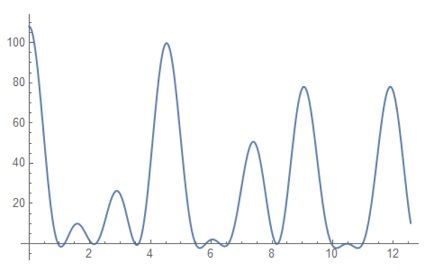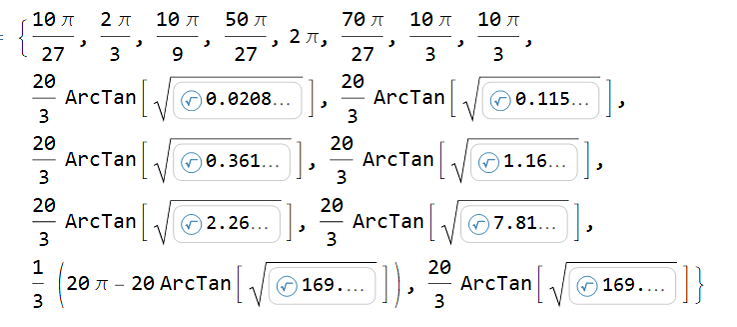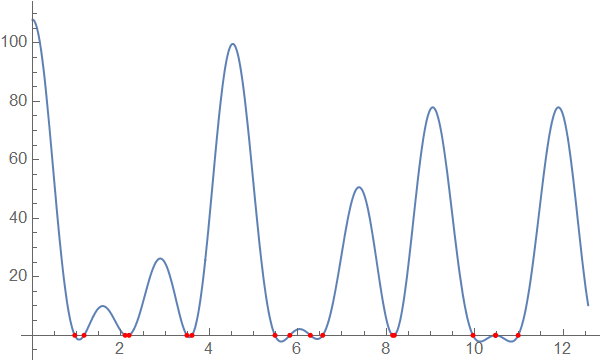I have this equation
$$ 36 \cos \frac{3 x}{4} \cos \frac{27 x}{20} \left(\cos \frac{3 x}{5} +2 \cos \frac{21 x}{10} \right)=0 $$
Is it possible to ask Mathematica to give all the roots of the function on the domain $0<x<4\pi$? Preferably as a rational multiple of $\pi$? (the plot of the function is attached)
36 Cos[(3 x)/4] Cos[(27 x)/20] (Cos[(3 x)/5] + 2 Cos[(21 x)/10]) == 0



